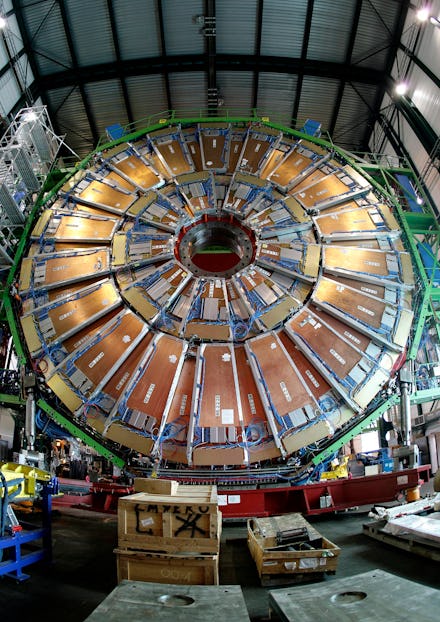Hints of a New Particle Could Completely Change Physics as We Know It

A fluctuation in the data from the world's most powerful particle smasher could be a random blip — or a breakthrough that could turn all of physics on its head.
The problem is, we don't which it is.
The 17-mile-long underground particle smasher called the Large Hadron Collider restarted in 2015 and began smashing particles together at a higher energy level than humans have ever reached before. And in December, two different detectors at the LHC both spotted the same strange fluctuation, which physicists say could hint at the existence of a brand-new subatomic particle.
"Fluctuations come and go in our field — that's why we're very wary of saying anything," James Beacham, an experimental physicist who works with the LHC, said in a phone interview in March. "We've seen bumps go away very quickly."
But if that fluctuation turns out to be a new particle, physics will never be the same.
The LHC famously revealed the existence of the Higgs boson in 2012. The Higgs was the last puzzle piece in the standard model of physics that explains how the universe is structured. The problem is, there are gaps in the standard model: It doesn't explain gravity or dark matter. Now that the LHC is running at almost twice the energy it was when we discovered the Higgs, we might find new particles that are able to fill in the gaps of the standard model, Beacham said.
We don't know if the fluctuation from December is really hinting at a new particle. It could just be a random, statistically insignificant blip in the data.
"The take-home message is we need more data," Beacham said.
If it is real, the implications could be huge. The data blip could be a sign of a graviton — a long-theorized particle of gravity, Beacham said. Other experts have said it might be hints of a new, undiscovered dimension.
It's an exciting time at CERN, but scientists must stay "extremely precise and sober about our proclamations," Beacham said.
The LHC closed for winter, but now it's revving up for another run that should start in early May.
We likely won't have solid answers about this mysterious fluctuation until the ICHEP physics conference in Chicago in August, Phys.org reported.